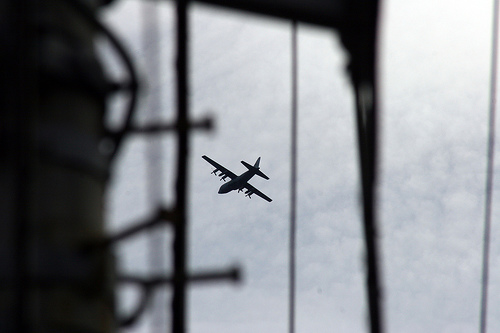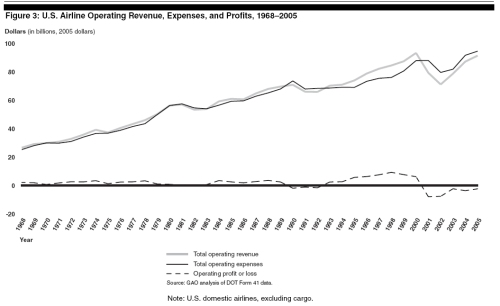
Yesterday, several outlets reported on former American Airlines CEO Robert Crandall’s speech at the Wings Club (full text here). Crandall, who ran AA during the process of deregulation and made it an industry leader in the post-deregulation era, opposed deregulation in the late 1970s, and his opinions haven’t changed: “We have failed to confront the reality that unfettered competition just doesn’t work very well in certain industries, as aptly demonstrated by our airline experience and by the adverse outcomes associated with various state efforts to deregulate electricity rates. It’s time to acknowledge that airlines look and are more like utilities than ordinary businesses.”
Because Crandall is such a legend in the airline world, I’d like to go through his remarks seriously and respectfully. The key question: should airlines be operated like public utilities? Public utilities arise from natural monopolies, in which it is most efficient for a single firm than multiple, competitive firms to provide a service. Natural monopolies usually result in infrastructure- and capital-intensive industries. Classic examples include electricity transmission or public transportation: it’s too costly for competing firms to maintain multiple networks of power lines or subway tunnels. A utility is often created because it is the only way to ensure crucial infrastructure investments are made; if multiple firms are competing, they may not be able to afford to upgrade their systems over time. Economists have been doing important work exploring whether such utilities are really natural monopolies. Back in the 1970s, a consensus was reached that airlines did not constitute such a monopoly.
Indeed, certain elements of the infrastructure of the airline industry may be natural monopolies. Would it be more efficient to have multiple air traffic control firms competing? Not likely. And communities in which there is one major airport may find that a natural monopoly. (But regions with multiple, competitive airports, like London or New York, have great potential for airline competition. BAA, the owner/operator of London’s three largest airports, was set up as a sort of private utility with so much market power because only such a structure was thought to allow sufficient investment in infrastructure. As it turns out, BAA’s common ownership in a competitive environment has retarded investment.)
But airlines themselves are no longer thought of as a utility. Why were they ever? (more…)
Read Full Post »


 Alfred Kahn
Alfred Kahn
Deregulation “clearly, definitely” a good idea: an interview with Alfred Kahn
Posted in Evan's Commentary, tagged congress, history, labor, network airlines, regulation on July 9, 2008| 5 Comments »
Sorry for the light posting around here. I’ve been working on some major writing projects that will appear over the next few months. In the course of one of them, I had occasion to chat with Alfred Kahn, the chairman of the Civil Aeronautics Board in the late ’70s and the “father of airline deregulation” (although when deregulation’s record was questioned he would later joke that he wanted a paternity test). Here are a few highlights from our conversation.
Why was it so successful? The answer, he said, is that it “sparked an enormous increase in competition and air travel affordable to people from a much wider spectrum of income than before . . . made possible by filling seats in the previous decade that had gone empty.” Furthermore, he added, airlines are providing the service demanded: “I don’t see any evidence even now that the industry is failing to provide service that is economically viable.”
Notwithstanding the high fuel costs that many analysts say will drive most airlines into bankruptcy and force an industry transformation, Kahn insists that introducing competition into the industry was a good thing to do. “That’s no reason for denying the benefits from competition.” There is nothing inconsistent to say that there was a $5-10 billion per year benefit to consumers and that today’s energy situation may be reversing those benefits. Furthermore, changes the airlines made in the past thirty years due to competitive pressures may help them in today’s climate: “The increase in competition clearly forced them to improve their productivity; I don’t see that those [gains] are being wiped out.” All industries are to some extent exposed to losses due to high energy prices, Kahn said, so “nor would it be desirable for [airlines] to be sheltered from the change in our energy situation.” (more…)
Read Full Post »